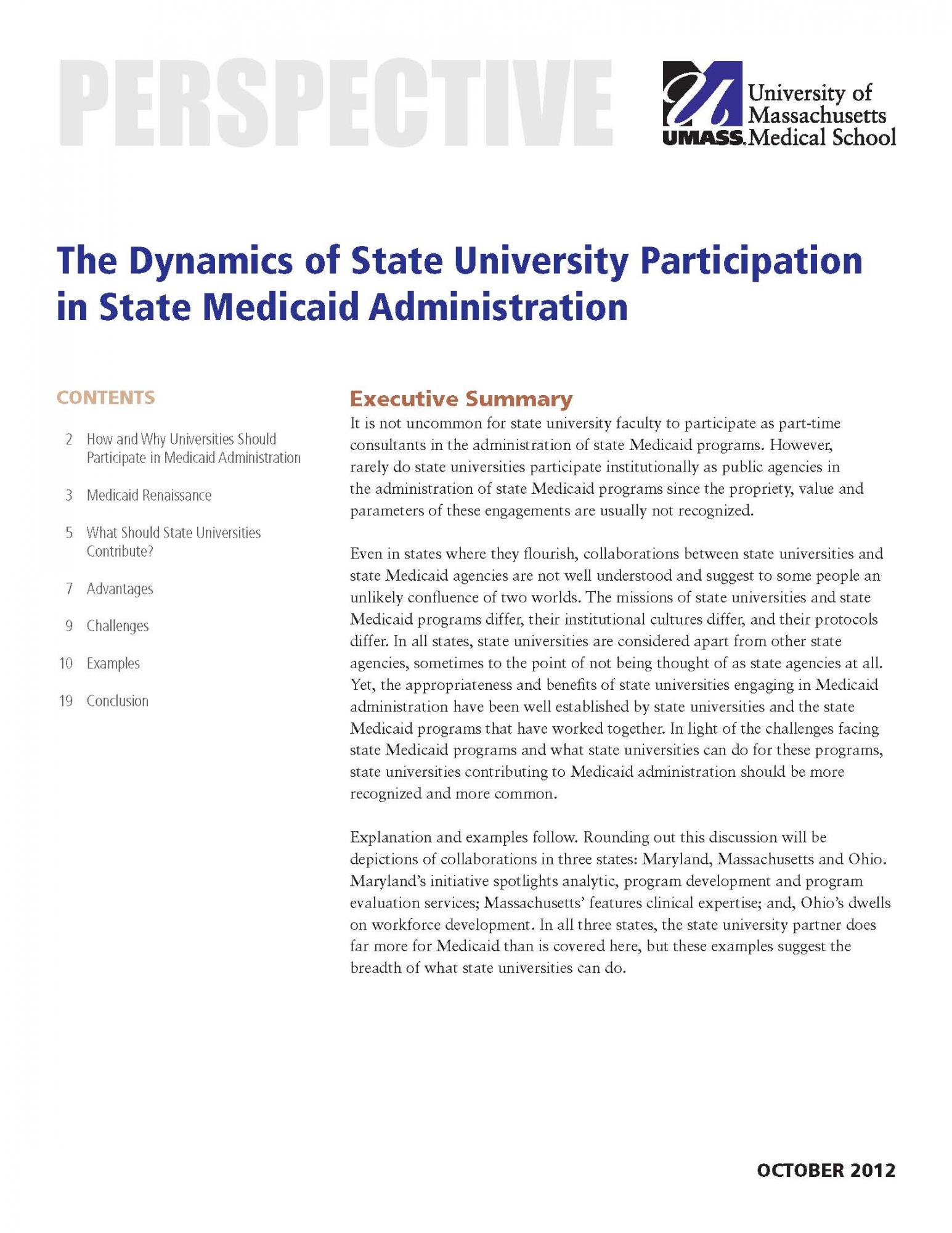It is not uncommon for state university faculty to participate as part-time consultants in the administration of state Medicaid programs. However, rarely do state universities participate institutionally as public agencies in the administration of state Medicaid programs since the propriety, value and parameters of these engagements are usually not recognized.
Even in states where they flourish, collaborations between state universities and state Medicaid agencies are not well understood and suggest to some people an unlikely confluence of two worlds. The missions of state universities and state Medicaid programs differ, their institutional cultures differ, and their protocols differ. In all states, state universities are considered apart from other state agencies, sometimes to the point of not being thought of as state agencies at all. Yet, the appropriateness and benefits of state universities engaging in Medicaid administration have been well established by state universities and the state Medicaid programs that have worked together. In light of the challenges facing state Medicaid programs and what state universities can do for these programs, state universities contributing to Medicaid administration should be more recognized and more common.
Explanation and examples follow. Rounding out this discussion will be depictions of collaborations in three states: Maryland, Massachusetts and Ohio. Maryland’s initiative spotlights analytic, program development and program evaluation services; Massachusetts’ features clinical expertise; and, Ohio’s dwells on workforce development. In all three states, the state university partner does far more for Medicaid than is covered here, but these examples suggest the breadth of what state universities can do.

